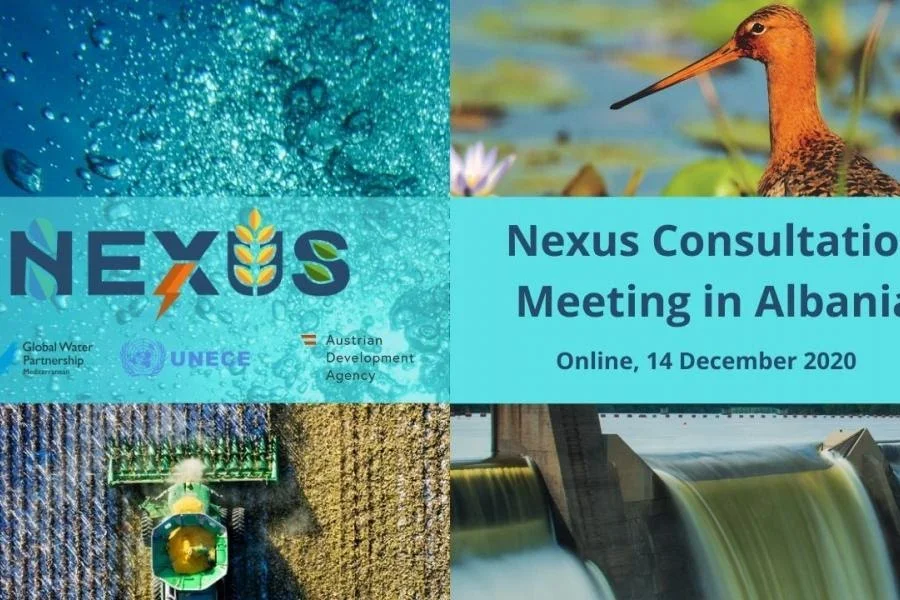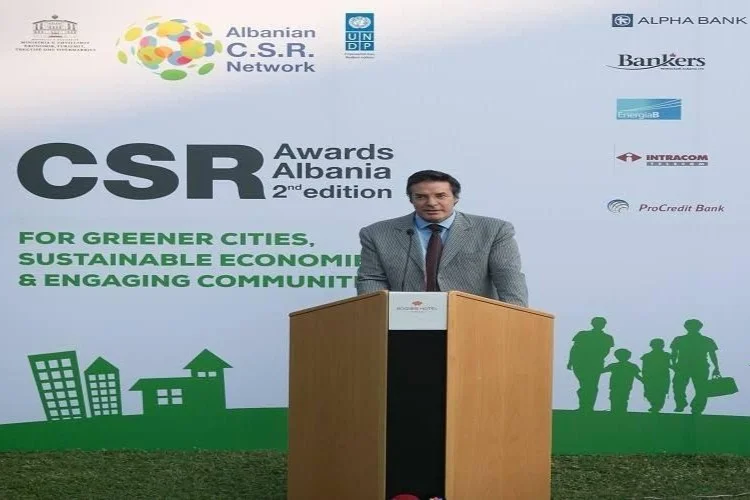Albania identifies key sustainability challenges using UNECE’s Water-Food-Energy-Ecosystem Nexus approach

Economic and social development in Albania crucially depends on the availability and good quality of water, land, forest and environmental resources, which are, however, under increasing pressure, including from climate change. An online consultation on the Water-Energy-Food-Ecosystems Nexus in Albania, provided for broader engagement into a cross-sectoral assessment exercise.
More than 50 officials, stakeholders and experts discussed how to overcome barriers to sustainable development and coordinate actions, essentially discovering an integrated Nexus approach, to reduce trade-offs and to achieve cross-sectoral benefits for all. In Albania, UNECE’s Nexus assessment methodology is applied for the first time at national level as the use so far has been at transboundary river basin or aquifer level.
By pointing at opportunities for synergies in managing and using water and related resources, the South-Eastern Europe Nexus project is promoting the Nexus approach to assist countries in moving towards a better overall resource security. In the context of the project’s activities in Albania, the online consultation was convened by the Global Water Partnership Mediterranean in partnership with UNECE to inform the preparation of the Nexus Assessment.
In the opening statement delivered on behalf of the UN Resident Coordinator, Ms. Fiona McCluney, her Head of Office Ms. Fioralba Shkodra underlined the value of exploring opportunities how to maximize the impacts from work at different levels and by different sectors, mobilizing resources from local, national and international sources for sustainable development, mindful of the regional connectedness and need for cooperation. She stressed that “Designing, planning, and implementing nexus solutions and investments is in the interest of all sectors’ policy makers because these are associated to lower political risks, higher levels of coherence when it comes to cross-sectoral goals and broader benefits, than strictly sectorally developed solutions.”
 Albania
Albania Algeria
Algeria Andorra
Andorra Argentina
Argentina Armenia
Armenia Australia
Australia Austria
Austria Azerbaijan
Azerbaijan Bahrain
Bahrain Belgium
Belgium Bolivia
Bolivia Brazil
Brazil Bulgaria
Bulgaria Cambodia
Cambodia Cameroon
Cameroon Canada
Canada Chad
Chad Chile
Chile China
China Colombia
Colombia Costa Rica
Costa Rica Croatia
Croatia Cyprus
Cyprus Czechia
Czechia Denmark
Denmark Ecuador
Ecuador Egypt
Egypt Finland
Finland France
France Georgia
Georgia Germany
Germany Ghana
Ghana Greece
Greece Hungary
Hungary Iceland
Iceland India
India Indonesia
Indonesia Ireland
Ireland Italy
Italy Jamaica
Jamaica Japan
Japan Jordan
Jordan Kazakhstan
Kazakhstan Kenya
Kenya Kuwait
Kuwait Latvia
Latvia Lebanon
Lebanon Libya
Libya Lithuania
Lithuania Luxembourg
Luxembourg Malaysia
Malaysia Maldives
Maldives Mali
Mali Malta
Malta Mexico
Mexico Moldova
Moldova Monaco
Monaco Morocco
Morocco Netherlands
Netherlands New Zealand
New Zealand Nigeria
Nigeria North Macedonia
North Macedonia Norway
Norway Oman
Oman




